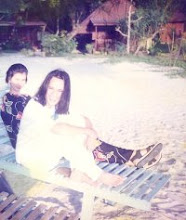
Events of recent weeks have highlighted the difficult question of what should be the legitimate scope of freedom of expression in culturally diverse societies. Raja Petra was arrested under Section 73(1) of the ISA, alleged to have posted articles deemed to belittle Islam and seditious in nature. Sin Chew Daily reporter Tan Hoon Cheng was arrested over her report on former Bukit Bendera Umno division chief Datuk Ahmad Ismail’s racist remarks while campaigning for the Permatang Pauh by-election last month. She was released after a one-day detention under the ISA. DAP’s Seputeh MP Teresa Kok is believed to have been picked up in connection with a residents petition in Puchong over a mosque.
While different societies have drawn the boundaries of free speech in different ways, the controversies brought about by these individuals shows how, in today's increasingly global media space, the impact of actions by a few can be felt by many. Today, more than ever, societies are faced with the challenge of asserting universal human rights principles in an area where there has traditionally been a tendency to defer to the domestic laws of a particular state and the values they enshrine. Set against the backdrop of the rising climate of intolerance and suspicion between races and religious groups, two conflicting sets of principles are being advanced in this controversy.
1. The right to freedom of opinion and expression should be one of the cornerstones of any society. This right includes "the freedom to hold opinions without interference and to seek, receive and impart information and ideas through any media, regardless of frontiers" (Universal Declaration of Human Rights, Article 19).
2. The right to freedom of expression is not absolute - neither for the creators of material nor their critics. It carries responsibilities and it may, therefore, be subject to restrictions in the name of safeguarding the rights of others. In particular, any advocacy of national, racial or religious hatred that constitutes incitement to discrimination, hostility or violence cannot be considered legitimate exercise of freedom of expression. Under international standards, such "hate speech" should be prohibited by law.
In the light of the above, I am deeply troubled by the growth of irresponsible alternative media. In the name of freedom, many websites allow the broadcast of slander, lies and swearing, use of harsh, degrading language and racial slurs without regard for the reader or those concerned. It cannot be denied that many of the postings, even though these may or may not be articles by the bloggers, are inflammatory. Many are downright racist, slanderous and libellous. The use of four-letter words has been allowed to go through without any moderator to delete them. Bloggers cannot criticise our Members of Parliament for using unparliamentary languages when they themselves allow such obscenities on their blogs. Their victims have rights too, and bloggers should not assume that they have the monopoly over civil rights. Like print and electronic journalists, they must live by the same rules when it comes to defamation, libel and other laws relating to national security. But there is a difference: they don't need to answer to the Internal Security Ministry for a printing permit. Bloggers must admit that freedom of speech does not mean freedom to slander or to libel. If civil suits are taken against them, it is simply because others have been offended, if not emotionally or financially affected, by their words.





